Monopoly Area Monday & Changes at Grid Brief…
Welcome to Grid Brief! Today, we’re looking at power generation in America’s traditional monopoly areas with relevant news items. We’re also bringing you some news about a change at Grid Brief — check out the note below from Emmet.
Monopoly Area Monday
Here’s a snapshot of generation nationwide:

Nationwide, natural gas remains the dominant source of electricity, with renewables like wind and solar making significant inroads. The Energy Information Administration (EIA) reports that the U.S. is on track to double its battery storage capacity by 2024, driven by falling battery prices and increased investment in grid-tied energy storage.
And here’s a map to orient you as we move through the areas:

Carolinas
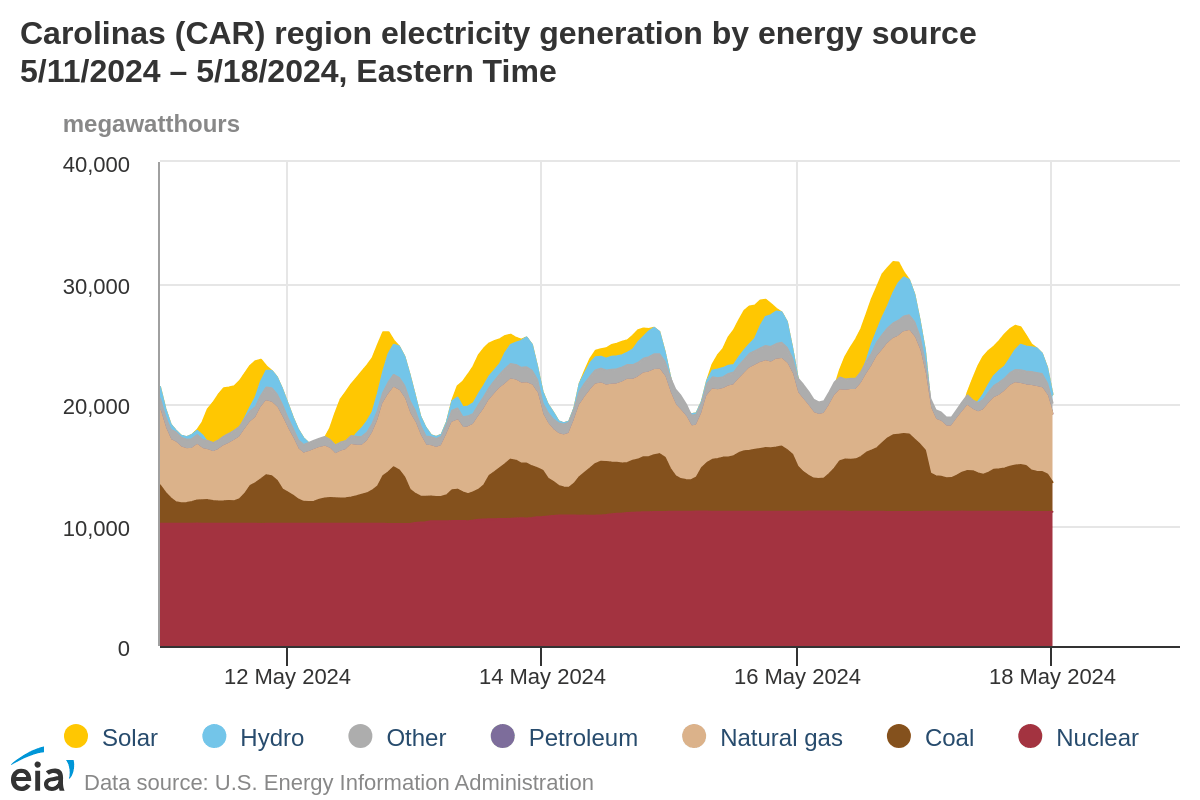
Duke Energy, a major utility in the region, has announced plans to expand its nuclear fleet to ensure a steady supply of low-carbon energy, aligning with broader climate goals and increasing energy security.
Tennessee (TVA)
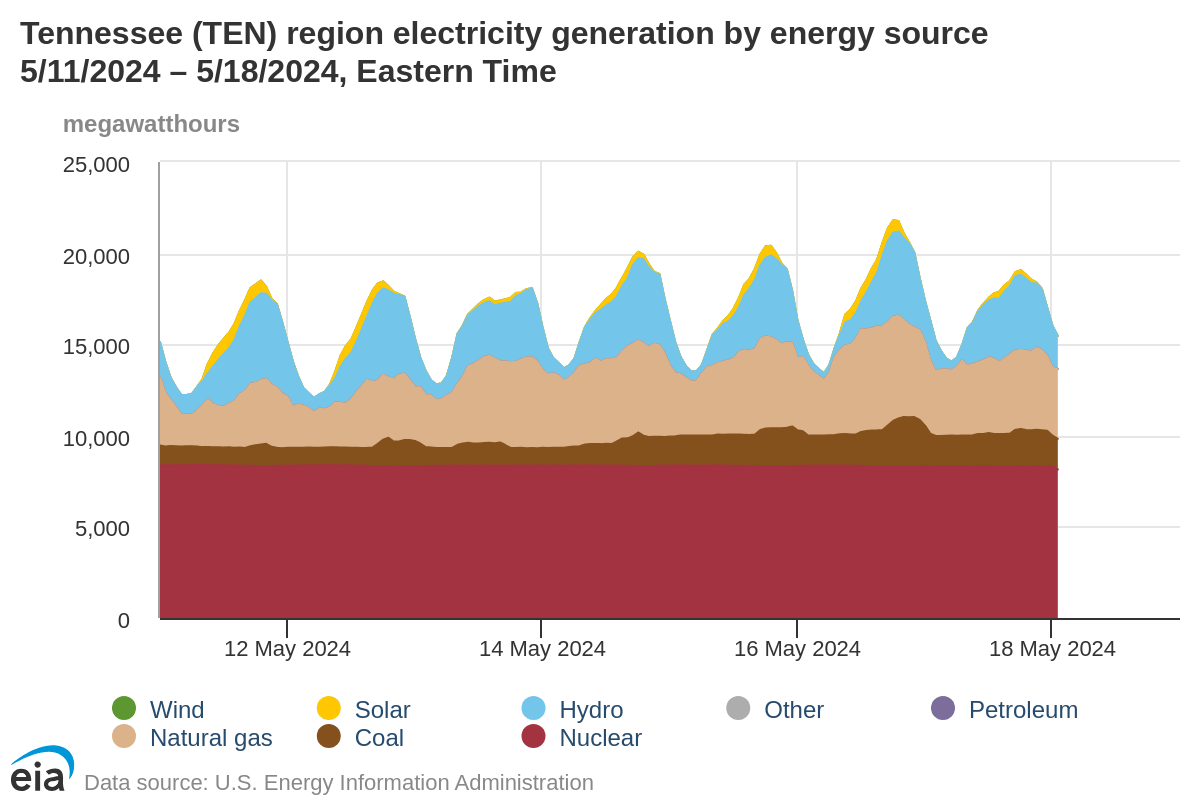
Recent heavy rains have led the TVA to manage water levels by spilling water from several dams, demonstrating their proactive approach to maintaining grid stability and flood control.
Southeast
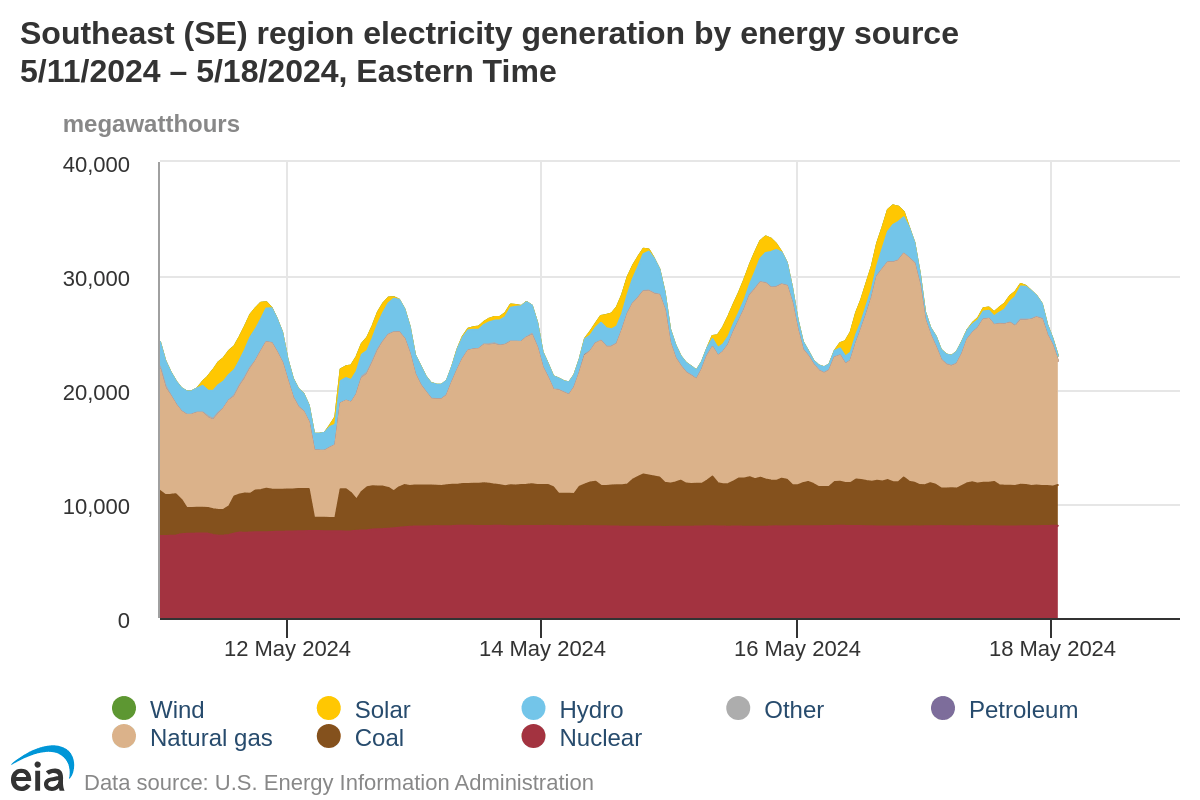
The recent severe weather events have prompted utilities in the region to review and enhance their disaster preparedness and response plans, ensuring a more robust energy supply during emergencies.
Florida

Governor Ron DeSantis recently declared a state of emergency in northern Florida due to severe storms that caused significant power outages. This event underscores the region's vulnerability to extreme weather and highlights the importance of strengthening grid resilience.
Texas (ERCOT)

In Texas, wind and natural gas dominate the energy mix, with significant contributions from solar. The state recently experienced a heatwave that pushed the grid to its limits, and had prices soaring 1600%. As of this writing, 349,000 Houstonians remain without power after their storms.
Northwest
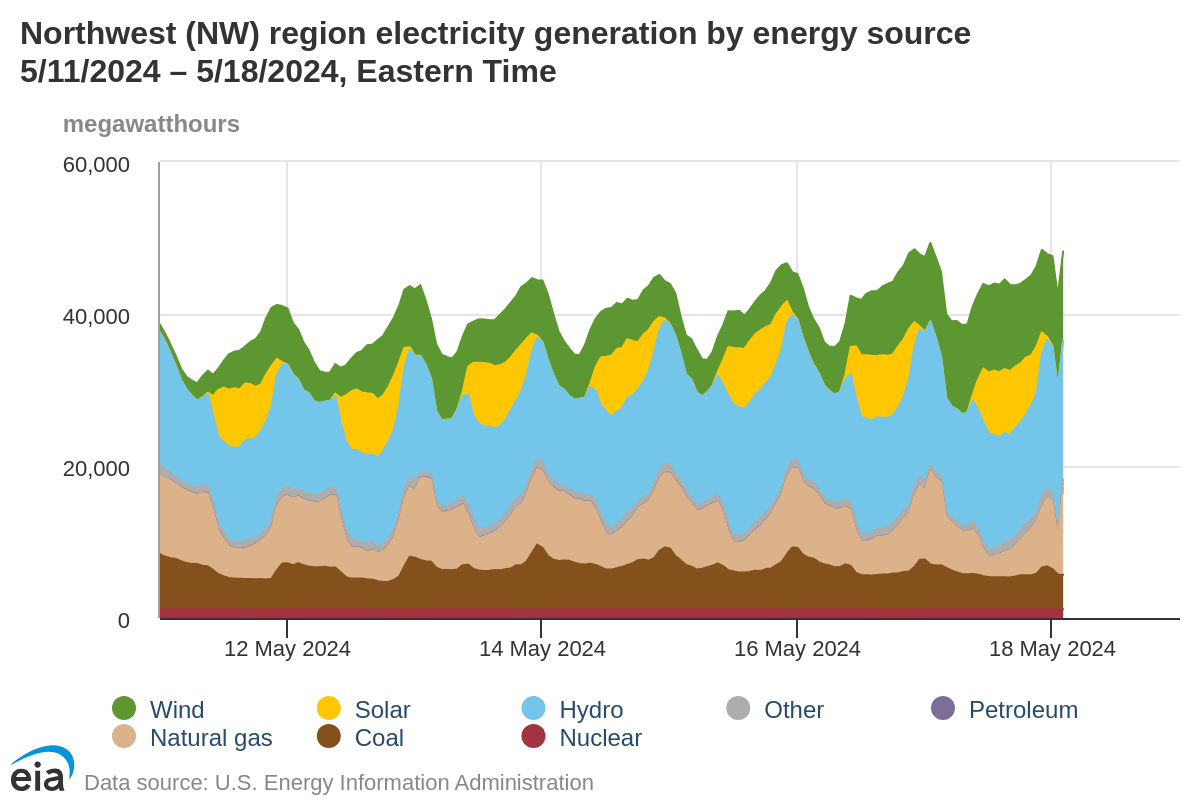
The recent uptick in hydro generation is attributed to heavy spring runoff from mountain snowpacks.
Southwest
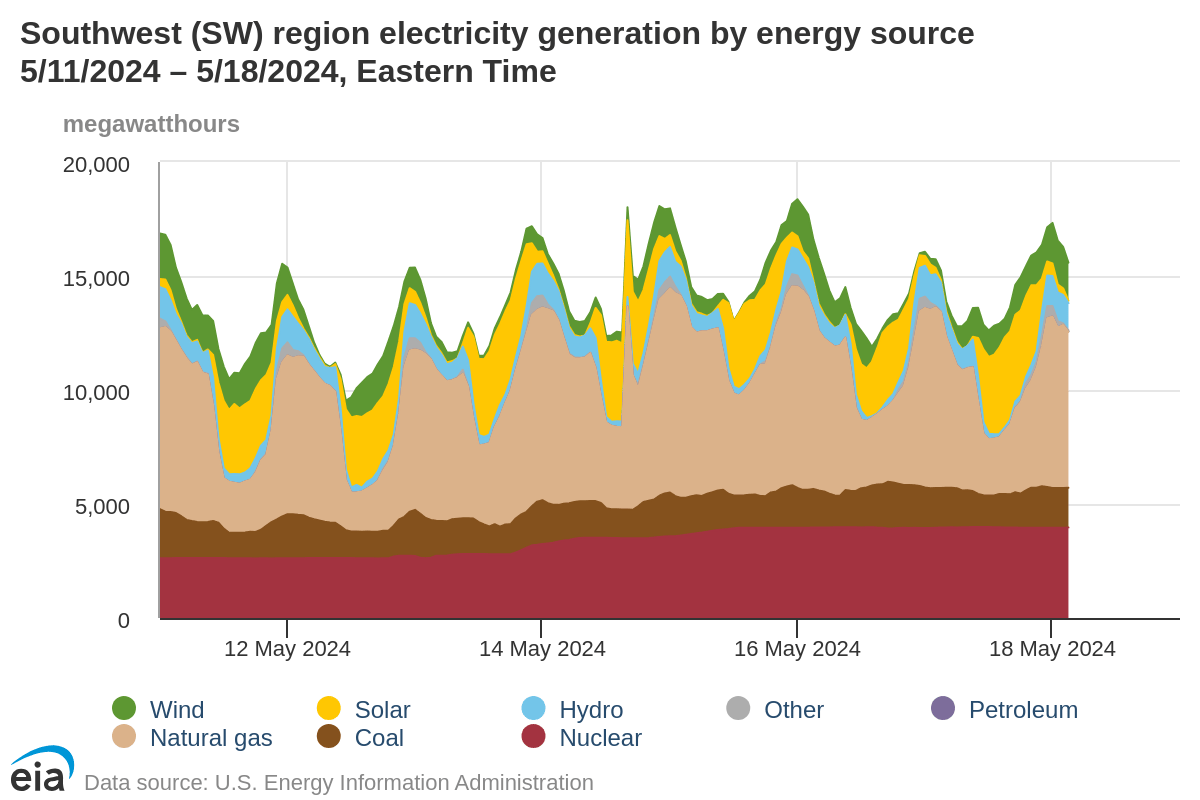
This region saw a significant spike in electricity generation from solar during peak daylight hours, complemented by consistent contributions from natural gas. Recent policy changes have aimed at boosting solar investments, although high borrowing costs and competition from cheap imports have caused some planned solar projects to stall.
Conversation Starters
Venezuela Bans Bitcoin Mining Amid Energy Crisis Venezuelan authorities have announced a nationwide ban on Bitcoin mining in an effort to address the country's ongoing energy crisis. In a significant crackdown, over 11,000 Bitcoin mining machines were confiscated, following a raid on the Tocorón prison, which had been under the control of a notorious gang. The seizure was part of a broader effort to reduce strain on the national grid, which has been plagued by frequent blackouts.
Maryland Pushes VPP Solution with New Legislation Governor Wes Moore of Maryland has signed three bills to boost distributed energy resources, virtual power plants (VPPs), and home electrification. The DRIVE Act, Brighter Tomorrow Act, and an updated emPOWER Act mandate utilities to support VPPs and bidirectional EV charging.
Battery Prices in Freefall, Grid Storage Soars Battery cell prices have plummeted over 60% since mid-2023! This dramatic drop, fueled by a surge in EV adoption and grid expansions in China and the U.S., mirrors the recent solar cell price declines. The U.S. is on track to nearly double its battery capacity in 2024, with China leading the charge at over 24 GW. This means a massive boost in grid-tied energy storage.
A note from Emmet
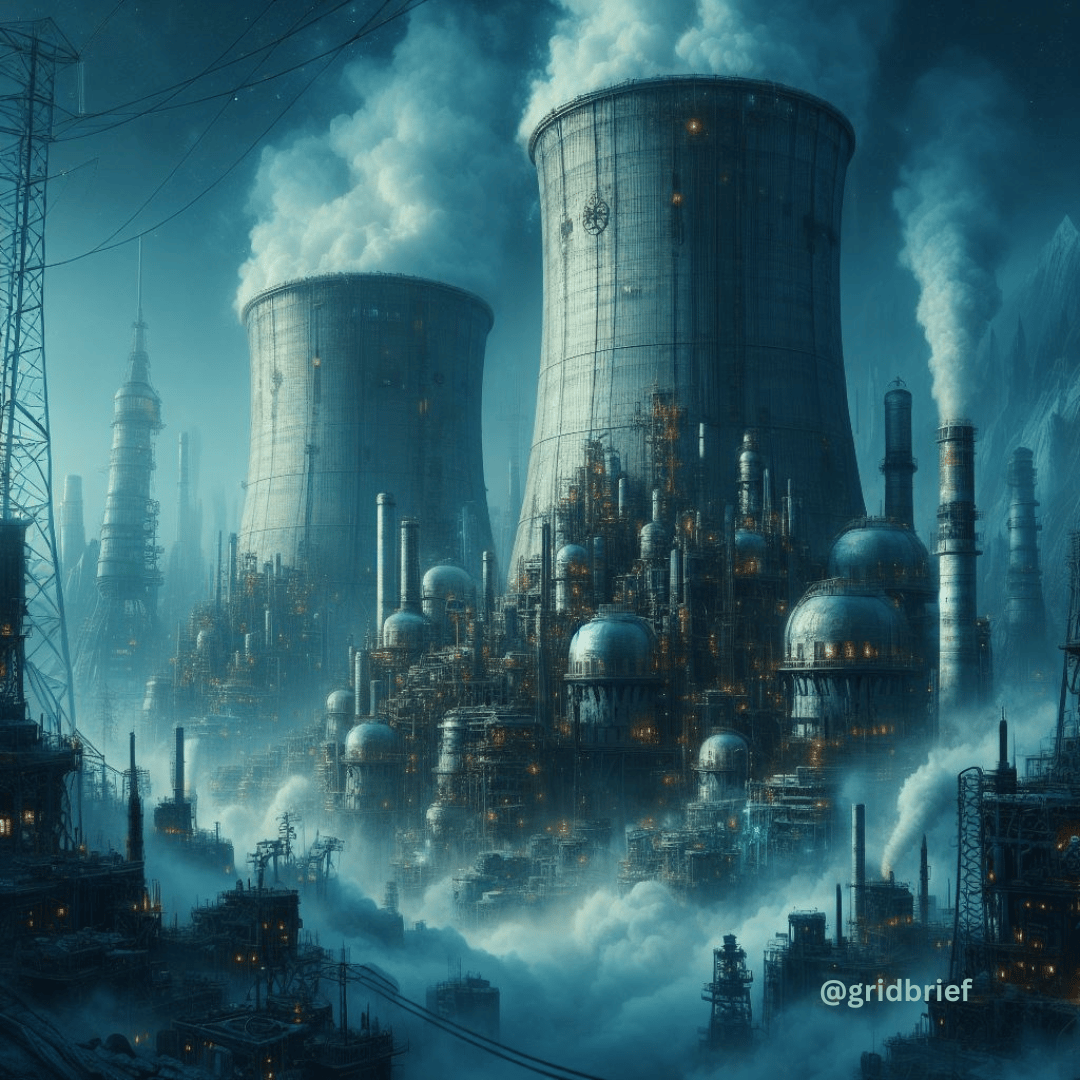
For the last two years, I have enjoyed every moment of bringing you some of the most important and often under-covered energy stories in the world. In my time serving as Grid Brief’s editor-in-chief, the unfolding electricity crisis threatening America’s grid increasingly disturbed me. And it has also become clear that the American public, for various reasons, has little idea of what is going on.
So, I’ll be stepping away from Grid Brief to pursue writing a book on the history of the American electricity system, how it grew into such dysfunction, and what we can do about that. I’ve loved working on Grid Brief, but the demands of writing such a book can’t be shared with the work-pace of a daily newsletter.
Grid Brief will continue to live on and you’ll meet your new editors and writers in the coming days.
If you would like to keep up with my writing on energy, you can subscribe to my Substack, Nuclear Barbarians, where I will continue to cover the electricity crisis along with cultural, historical, and philosophical aspects of energy.
Thank you for everything.
-Emmet Penney
